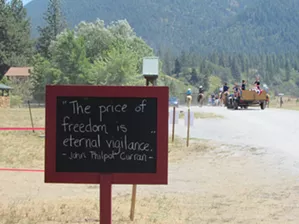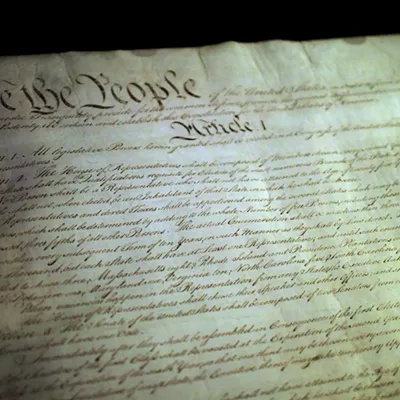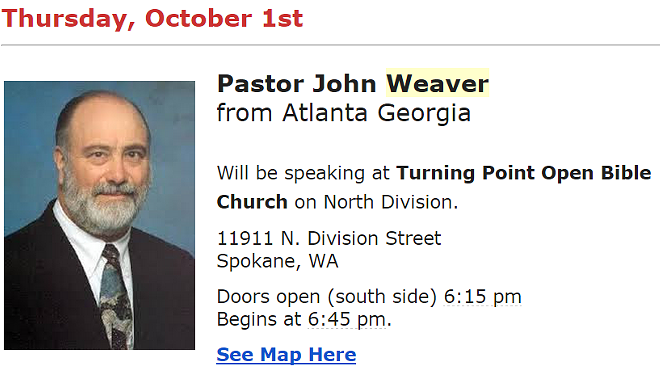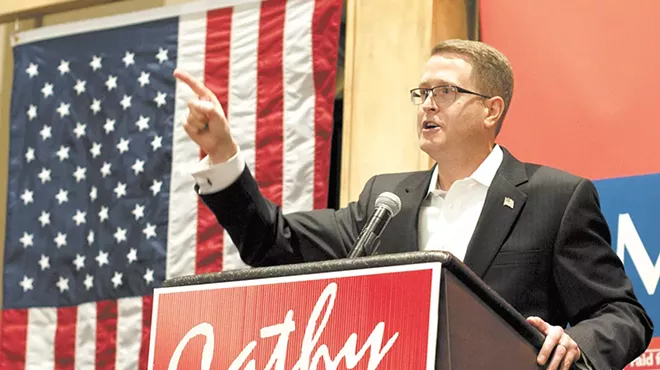Wednesday, August 12, 2015
Spotting a bogus Thomas Jefferson quote
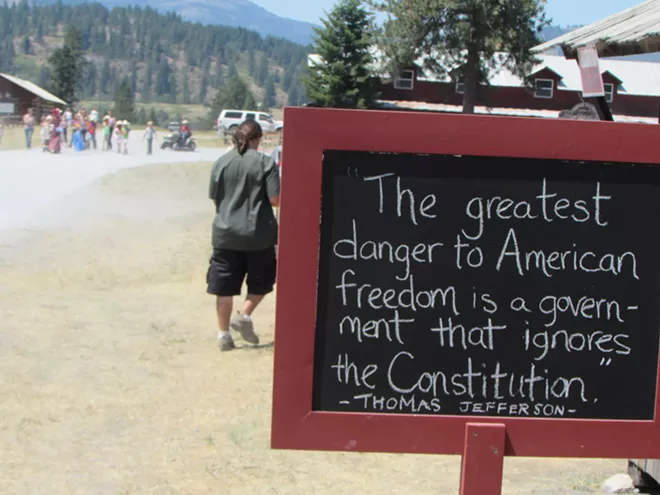
At the entrance to Marble Country's 21st Annual God and Country Celebration, an important event detailed in this week’s cover story, was a chalkboard with a stirring quote about liberty:
“ ‘The greatest danger to American freedom is a government that ignores the Constitution.’ - Thomas Jefferson”
He didn’t say that.
The sentiment seemed fairly Jeffersonian, but the quote seemed a bit too clean-cut and simple. According to this awesome “Spurious Quotations” page at the Monticello website, that quotation is pretty darn spurious.
It apparently first appeared online at the not-very-official sounding “Quotes on the Second Amendment” page on cap-n-ball.com back in 2004.
It’s particularly relevant to our cover story because this group has a history of bringing speakers with questionable takes on American history. In the story, we talk about Pastor John Weaver, a man who once put out a tract titled the “Biblical View of Slavery,” arguing that slavery was not inherently evil and that some slaves were ''blessed the Lord'' for being enslaved, because it was better than being in Africa.
At the same event two years ago, Montana pastor Chuck Baldwin was a guest speaker. In a recent 3,500 word essay, he draws upon John Weaver’s thinking to slam Abraham Lincoln, celebrate the Confederacy, and suggests it’s particularly absurd to say the Civil War was fought over slavery.
“Ladies and gentlemen, I submit that what we see happening in the United States today is an apt illustration of why the Confederate flag was raised in the first place,” he wrote. “Instead of lowering the Confederate flag, we should be raising it.” (For a counterpoint, I suggest you read why the states seceded from the Union directly from the states that seceded from the Union.)
But with this particular incident, I wanted to find out more about how historians prove that a quote from Thomas Jefferson isn’t from Thomas Jefferson. I talked to Anna Berkes, research librarian at the Jefferson Librarian at Monticello.
“We start with searching Jefferson’s papers,” Berkes says. “More and more of his papers are online and searchable.”
At Founders Online, over 17,000 of Jefferson’s approximately 19,000 letters and documents have all been archived in searchable form. Next she’ll move onto broader sources. One of the best is the simplest: Google. If the quote appears in mostly unofficial capacities, that’s a red flag right there.
“If the only place you see a lot of the quotes is just a lot of bulletin boards and quote aggregation websites, like Brain Quotes, and that’s the only place you see it, I would be suspicious,” Berkes says. “Legitimate Jefferson quotes are almost all from collections that have already been published.”
In those cases, Thomas Jefferson quotes in collections go through a fairly official approval process.
“The chances that someone would have found quote in a manuscript that has not been published and has put it out there for the public to see, that’s relatively unlikely,” Burkes says.
Beyond that, Burkes says, the amount of time she’s spent reading through Jefferson’s writing has given her a sense of when a quote is bogus. Jefferson didn’t use contractions. Some spurious quotes do. Some quotes will use phrases that weren’t around during Jefferson’s time, like “inflation” and “deflation.”
Sometimes, the quote just feels wrong.
“His writing style is very elegant. A lot of these spurious quotes, his language is too straightforward,” Burkes says. “They seem to me to be very clunky compared to Jefferson’s writing. That can sometimes be a giveaway.”
Of course, repeating quotes that were never said is pretty common. Back in 2011, Megan McArdle wrote an interesting blog post exploring how a partly bogus “quote” from Martin Luther King, Jr. spread across the Internet.
Ironically, the quote on the other side of the chalkboard is also one commonly misattributed to Jefferson: “The Price of Freedom is Eternal Vigilance’ – John Philpot Curran”And here, Marble gets the speaker right, though Curran’s actual quote, “The condition upon which God hath given liberty to man is eternal vigilance; which condition if he break, servitude is at once the consequence of his crime and the punishment of his guilt” isn’t nearly as pithy.

